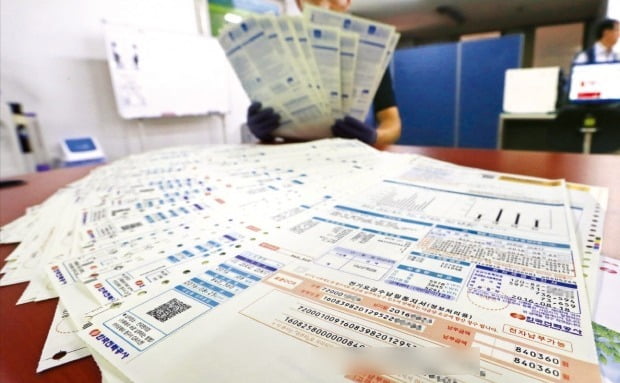
Photo = Yonhap News
The Korea Electric Power Corporation said, “Because there is concern about confusion among the people, we cannot calculate and disclose how much electricity rates will rise next year.” This is through a response to the request of the Korea Economic Daily and the Korea Economic Daily to submit estimates of electricity bills. The Ministry of Trade, Industry and Energy said, “We cannot figure out how oil prices will change.”
However, the government and KEPCO announced a plan to reorganize electricity rates last month, and announced the expectation that “the electricity rate is likely to go down in the second half of 2021.” There are criticisms that the government is contemplating by somehow announcing its favorable predictions for the regime, and hiding unfavorable predictions by refusing to submit requests to the National Assembly.
The government and KEPCO refused to request data from the National Assembly
![[단독]](https://i0.wp.com/img.hankyung.com/photo/202101/01.24946558.1.png?w=560&ssl=1)
Right after the government announced the plan to reorganize electricity rates last month, Rep. Yoon Young-seok and the Korea Economic Daily have inquired several times to inform the government and KEPCO’s electricity rate estimates after the next year. This is to solve the curiosity of citizens who are curious about how electricity rates change according to fluctuations in oil prices. However, the Ministry of Industry and KEPCO repeatedly refused, saying, “Because we do not know how oil prices will change, we cannot calculate them.”
When asked to submit the reasons for the rejection in writing, KEPCO gave a short explanation, saying, “If you derive an effect based on various assumptions such as fuel costs and exchange rates, there is concern about confusion in the public and distortion of the function of price signals.” Most of the answer data were contents promoting the merits of the electricity bill reform plan, such as, “There is no country that does not implement the linkage system while importing power generation fuel among the top 30 countries in GDP.”
The Ministry of Industry said, “It is difficult to accurately predict oil price fluctuations, and electricity rates vary depending on various variables such as LNG, coal prices and exchange rates, and fuel input ratio, in addition to oil prices.” I can’t do it.” However, this is the opposite of what the Ministry of Industry predicted electricity rates for in the second half of this year when the Ministry of Industry announced a plan to reform electricity rates last month. At the time, the Ministry of Industry announced that “the cut effect is likely to continue (highly) given the forecasts of oil prices by major institutions.”
Rep. Yoon Young-seok emphasized that “It is deceptive to the people to give the reason’to prevent confusion of the people’ while not being able to tell you how much money to take.” Rep. Yoon said, “As the government and KEPCO said, oil price fluctuations cannot be predicted, but most institutions predict that oil prices are likely to rise in the future as the economy recovers.” I don’t like to do it, so I doubt whether he refuses to calculate the estimate.”
Fall in the first half of this year, likely to rise next year
As the government said, electricity bills this month are somewhat cheaper than last year. This is because the’everything low oil price’ caused by the novel coronavirus infection (Corona 19) is reflected in the fuel cost. However, electricity rates for next year are likely to rise from this year. This is because there are many expectations that oil prices will recover to levels before Corona 19 this year. If oil prices rise sharply than expected and the cost of solar and wind power reflected in electricity rates rises, as in the recent trend, electricity rates are expected to rise significantly compared to before the reorganization.
KEPCO will sequentially send out electricity bills for December last year from the 11th. This bill is the first to apply the fuel cost index, in which electricity rates are adjusted according to fluctuations in oil prices. A household of four who used 350kWh of electricity for the house last month will receive a 1050 won rate cut. The total fee, including VAT, etc., will decrease by about 1,000 won from 550,000 won to 54,000 won.
But next year, the story changes. If solar and wind power costs rise by about 2 won per 1 kWh and oil prices surge, electricity bills are estimated to rise to around 58,000 won. This year’s (54,000 won) as well as last year’s (550,000 won) electricity bills are rising. Recently, global forecasting agencies are continuing to raise their oil price forecasts as they are expected to end the epidemic with the spread of the Corona 19 vaccine.
Reporter Seong Soo-young [email protected]
